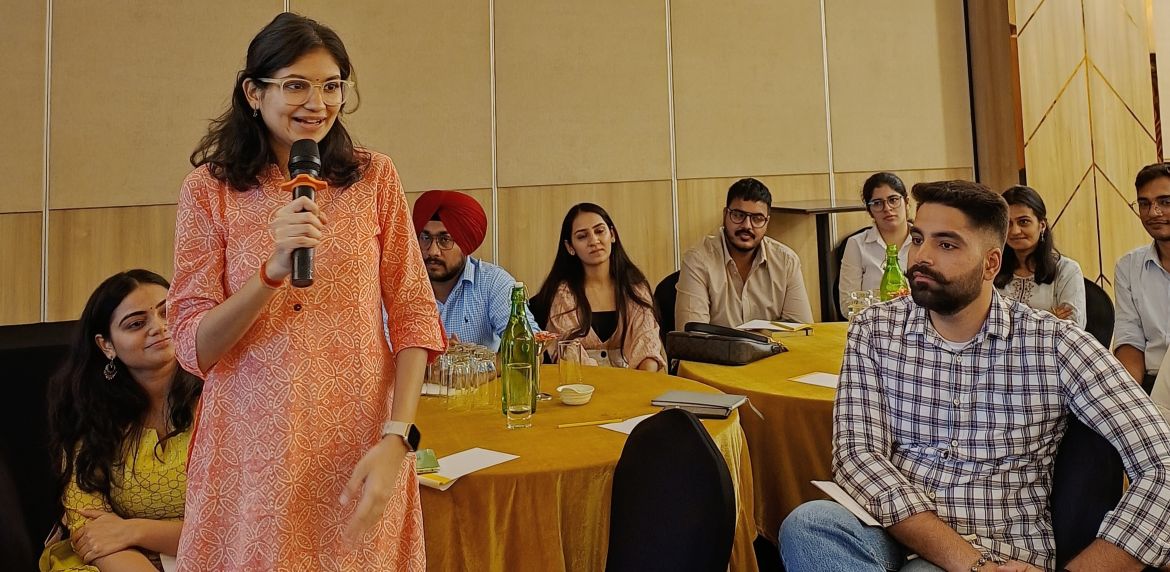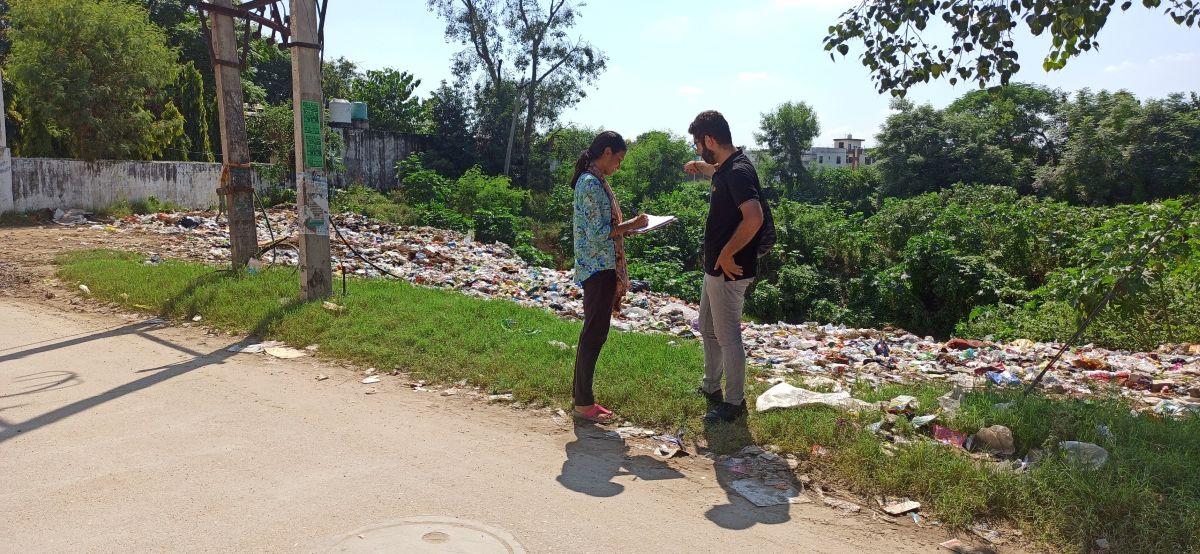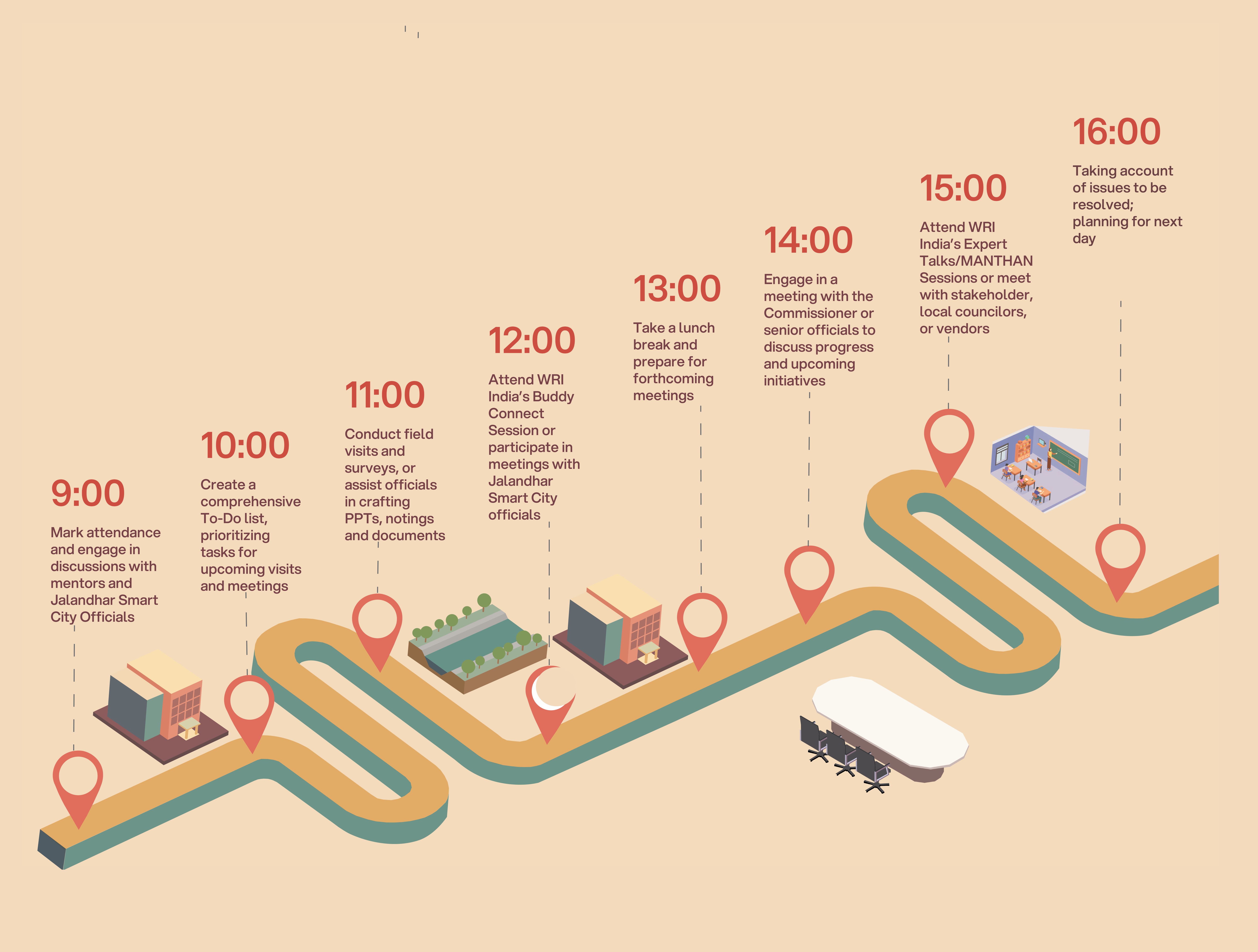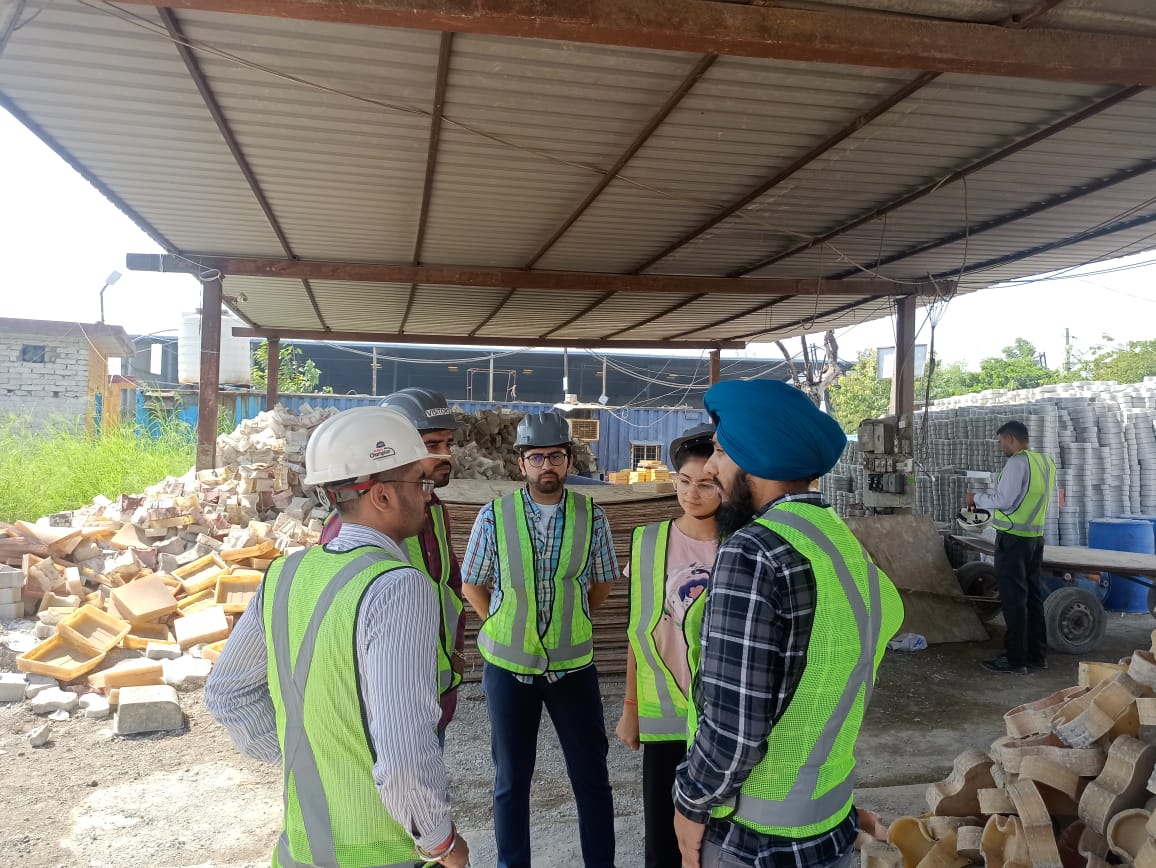Engaging Young Professionals in Jalandhar’s Urban Transformation

Daya begins his day early, stepping out of the bustling Jalandhar Smart City Limited office and catching a local bus to the Kala Sanghian Drain — a site he has been monitoring for over three weeks. He is trying to understand the waste management practices in the neighborhoods along the drain. He meets the residents and zonal and district officers to find out the root causes behind the dumping of solid waste in the drain. Armed with fresh insights and a sense of accomplishment, he returns to the office to brief the commissioner on his findings from the field visit.
Daya, a young urban planning professional, along with other fellows from the Jalandhar Eco City-region Fellowship, has spent 11 transformative months in Jalandhar. Situated in the Beas and Sutlej River basin, Jalandhar district is critical to Punjab's water resource management and agriculture, owing to its fertile soil. Unfortunately, like many city regions in India, the growing city has begun to face pressing urban and environmental challenges, like solid waste management and water pollution. To address these emerging issues, the Municipal Corporation of Jalandhar (MCJ) launched the Jalandhar Eco City-region Fellowship – a first-of-its-kind initiative in the region.

About the Fellowship
In June 2020, the Ministry of Housing & Urban Affairs (MoHUA), in collaboration with the Ministry of Education and All India Council for Technical Education (AICTE), launched ‘The Urban Learning Internship Program’ (TULIP). The Jalandhar Eco City-region Fellowship built on this initiative and was launched in August 2023 by the Municipal Corporation Jalandhar (MCJ) in collaboration with WRI India. The program enabled young professionals to work closely with city agencies to address complex urban challenges. From urban governance and greening to waste management and sanitation, the fellows gained hands-on experience working across sectors and contributed to the projects with innovative approaches. The 12 fellows from diverse regions, from Muzaffarnagar to Ambala Cantonment, represent a microcosm of India’s young, aspiring urban planners.
The Fellowship Journey
Over 11 months, the fellows got deeply involved in around 40 live projects led by Jalandhar Smart Cities Limited (JSCL) and MCJ. A typical day for the fellows began early with field visits, where they gathered data and real-time status of the city’s infrastructure. Afternoons were dedicated to collaborative meetings with MCJ officials, where they translated their field insights into potential project ideas and design solutions. As work wrapped up for the day, evenings focused on skill-building sessions — learning spatial analytics, refining survey techniques and engaging with city residents for valuable feedback.


The fellows immersed themselves in diverse phases of the project, from initiation and planning to execution, monitoring, and closure. In the Citizen Connect initiative, they worked to enhance civic engagement by strengthening grievance redressal systems. By combining fieldwork — speaking with residents and observing community needs — with secondary research using tools like GIS mapping and data analytics, they developed plans and outlays like mapping of waste workers for Solid Waste Management at various dumpsites, setting a base for taking data-driven decisions to address these challenges.

Capacity Building for Urban Challenges
Understanding project lifecycles and their potential challenges requires a deeper grasp of urban challenges. WRI India held capacity-building sessions, including deep-dive interactive discussions, where complex issues were explored in detail, leading the fellows to new insights and strategies they could apply to their work on the field. Additionally, fellows met with sectoral experts, gaining valuable perspectives on approaches to urban planning, sustainability and governance.


Learnings and Challenges
Navigating the field of urban planning demands a diverse and ever-growing range of technical and people management skills that typical classrooms may fall short of providing. Vaibhav, an aspiring urban planner, shared, “Engaging with government officials gave me the confidence to communicate effectively and efficiently, allowing me to hone my overall presentation, communication and delivery skills.”

By working within a specific geographic context, they were able to understand unique regional nuances, gaining valuable insights into the complexities of urban management. As one fellow put it, “I gained a holistic perspective on the various climate factors influencing urban planning. For instance, the types of vegetation suited for Jalandhar differ significantly from those in Rajasthan. Long-term sustainable landscaping must align with the specific climate conditions to be truly effective."

While the fellowship offered a vibrant and enriching learning environment, it was not without its hurdles. Fellows faced the shifting tides of leadership, navigated the chasms between planning and execution, and contended with data-sparse landscapes. Each obstacle was also a lesson, revealing the intricacies of urban governance and policymaking and better equipping the fellows to tackle similar challenges as they embarked on their future endeavors.
Translating Learnings into Action
Following the fellowship, the participants headed onto diverse career paths, applying their newfound knowledge and skills in the real world. One of them, now a senior project architect at an architecture firm, reflected on his experience: “During my work on Urban Blue-Green infrastructure in Jalandhar, I gained valuable insights into managing industrial and solid waste near canals. Now, I’m able to directly apply those lessons in my design and planning work."

The Eco City-region Fellowship model can serve as a blueprint for urban local bodies across the country. Such initiatives not only bring in eager young professionals seeking real-world experience but also inject fresh perspectives and innovative solutions into urban planning processes. By integrating younger, home-grown talent into city planning, the program encourages greater participation from planners across small towns, villages and cities, promoting more inclusive and integrated development. These young professionals, many of whom hail from the region, are catalysts for change, offering creative approaches to longstanding challenges, and are helping build regional capacity for future city planning. If scaled, such approaches could be transformative, driving scalable and sustainable urban growth across Indian city regions.

All photos are by Rishab Gaba/WRI India.
Rishab Gaba is a former Senior Program Associate, WRI India.
